Substitute Teacher Series
Substitute teachers step up to the plate to provide coverage when they are needed the most. They are challenged to seamlessly blend into any classroom or situation at a moment’s notice. To be most prepared to fill any role, there are many proactive strategies that can help. In this series, courses are jam-packed with ideas, strategies, and real classroom examples to help you be successful as a substitute teacher. Having a menu of courses to choose from allows your substitute teaching force to build their own professional learning plan that builds on their previous experiences and teaching background.
Core Concepts

Course Length: 4 hrs.
The Prepared Substitute Teacher
Are you a substitute teacher wondering how you are going to survive and thrive in each new classroom
assignment? Be
prepared, be professional, and never let them see you sweat! In this course, you will be provided
with practical ideas
for your substitute teacher bag of tricks. Review teacher professionalism and explore quick and
effective strategies for
establishing rapport and managing classroom behavior. You will love the printable filler activities
available for each
grade level.
elementary ‐ intermediate ‐ secondary versions
Classroom Management / Student Behavior

Course Length: 2.5 hours
Managing Student Behavior with Increased Student Engagement
Student engagement is critical to so many aspects of students' school experience. Engagement has many positive benefits including stronger connection to school, increased academic abilities, and a more positive sense of social-emotional well-being. On the flip side, low levels of engagement are associated with a host of negative outcomes like delinquency, violence, and school drop out. It's vital for us to make that connection between engagement and behavior management in the classroom. In this course, you will learn various strategies for keeping students engaged in learning and minimizing behavioral issues in the process.

Course Length: 2.5 hours
Positive Behavior Supports in Action
When students know how to behave in the classroom, not only will they feel safe, but they will be better able to achieve academic success. Throughout this course you will be introduced to the Positive Behavior Support system for managing student behavior in the classroom. You will learn how to create effective rules, and will learn how a three-tiered system of support can be effective in creating an atmosphere of positive discipline in your school.
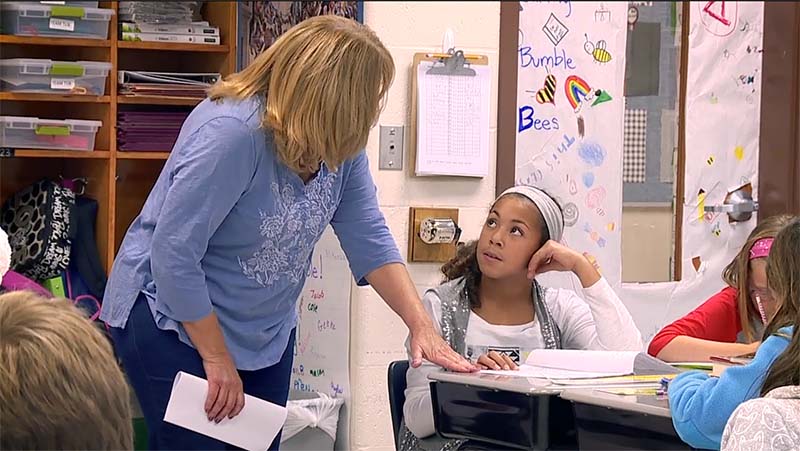
Course Length: 2.5 hours
Don't you Dare Throw that Chair - Elementary
In this course, you will be challenged to look at behavior scenarios and explore what is driving a student's behavior. Apply your knowledge to identify dysregulation and determine the best ways to deal with issues in the classroom. You will view life-like classroom scenarios that show both the unproductive and productive versions of situations you might face in the classroom. Watch teachers demonstrate how to work with students when they refuse to transition, bring an argument into the classroom, misbehave for a substitute teacher and constantly interrupt. Learn critical de-escalation strategies in this essential course for all school staff.
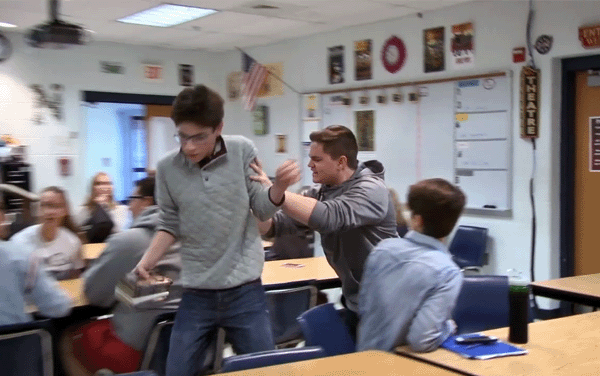
Course Length: 3 hours
Don't you Dare Throw that Chair - Secondary
Do you know what to do when a dyresgulated student enters your classroom who is heated from something that happened before class started? Learn critical de-escalation strategies in this essential course for all school staff. Explore what is driving a student's behavior. Apply your knowledge to identify dysregulation and determine the best ways to deal with issues in the classroom. You will view life-like classroom scenarios that show both the unproductive and productive versions of situations you might face in the classroom. Watch teachers in scenarios when students are not completing assignments, are overly focused on their cellphone, are attention seeking and constantly interrupting.
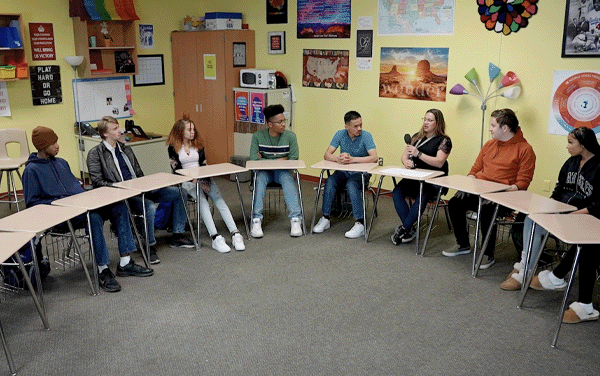
Course Length: 1.5 hours
Circle Up for Conflict Resolution
Has your classroom ever been disrupted by students arguing or maybe even a physical altercation? Unless they are taught from an early age, children do not always know how to resolve conflicts appropriately. This lack of understanding can lead to big problems in school. This course will teach you strategies for working with students to understand effective ways to resolve conflicts before they escalate to real classroom disruptions.
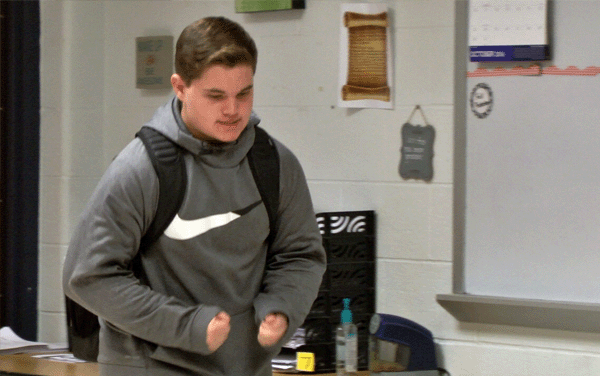
Course Length: 3.5 hours
What Student Behavior is Telling You
In every classroom, students’ behavior is an important form of communication. Students may call out in class, push in line, or withdraw with their heads down on their desks. In each case, the behavior is a sign that they may not have the skills to tell you what they need. Sometimes, students may not even know what they need. What are your students trying to communicate? How can you respond to the student, not the behavior? In this course, you will be challenged to think about behavior as a state of regulation and learn to look into what is driving the negative behavior. Knowing the function of the behavior will allow you to be proactive in identifying ways to prevent behavior issues in the future.
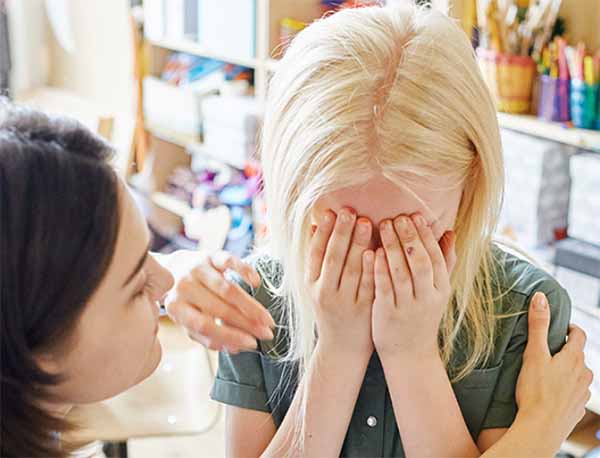
Course Length: 2 hours
ACES101: The Profound Impact of Adverse Childhood Experiences
The impact of trauma and it's long-term effects on overall health has garnered a great deal of media attention in the last few years. More than likely, you've heard terms like trauma-informed or trauma-aware movements. Although you've heard these terms, you may be wondering, what does this have to do with you as a teacher? This course will teach you about the impact of ACEs, adverse childhood experiences, and how these relate to behavioral and academic issues in school. Your own ACEs play a major role on how you interact with everyone around you, including your students. You will learn about effective strategies for working with trauma-impacted students in the classroom and the importance of building relationships that can counter the long-term effects of trauma on your students.
Instruction

Course Length: 4.5 hours
Differentiated Instruction in Action
A master teacher demonstrates flexibility in their instruction, can make changes on the fly and is responsive to the diverse needs of learners. Some of us are very attuned, on a daily basis, to what our students are learning, to what they are understanding, and to what they can do with their knowledge. Others of us are less so. What makes the difference? In this course, you will examine learning styles and focus on specific strategies for differentiating instruction in your classroom that will allow you to be attuned to your students diverse learning needs and boost academic success for all.

Course Length: 3 hours
Culturally Responsive Teaching
As good teachers, we all invest the time and effort to get to know our students. Relationships are the bedrock of good teaching in any classroom. This becomes even more important when teaching in a culturally diverse school. In this introductory course, you will explore several strategies for building trusting relationships with diverse students and creating a community of learners who are respectful, tolerant and culturally aware. Learn how to make any lesson culturally responsive and explore multicultural awareness activities that go beyond the surface.

Course Length: 4 hours
Igniting Student Motivation
As teachers, we are passionate about what we teach and want our students to be engaged in our lessons and be motivated to learn. But how do we plan for that? What do motivation and engagement look like? How can they be assessed? Throughout this course, you will learn about how to plan lessons that inspire, how to spark curiosity and passion in your students, and how to use the power of positive praise and feedback to motivate your students.
Relationship Building

Course Length: 4 hours
Building Positive Relationships and Classroom Culture
This course will establish a foundation for creating a classroom of mutual respect, care, and trust
between students and
teachers. Participants will explore the qualities that characterize effective, caring teachers and
identify the ways in
which their beliefs and expectations about teaching and learning can impact the success of their
students. We will also
explore the teacher’s role of interacting and building relationships with students. Participants
will learn how
fostering positive relationships with students will help promote enthusiasm and engagement.
elementary ‐ intermediate ‐ secondary versions

Course Length: 2.5 hours
Social Skills for Successful Learning
When students know how to appropriately manage their emotions, it frees up their minds for
learning. In order for our
students to handle daily stresses, work well with others, and be empowered, they need to be
taught important life skills
like social awareness, emotional regulation, and self awareness. Watch classroom examples of
elementary teachers in
action as they strive to educate the whole child and ensure success in every day life.
elementary ‐ intermediate ‐ secondary versions
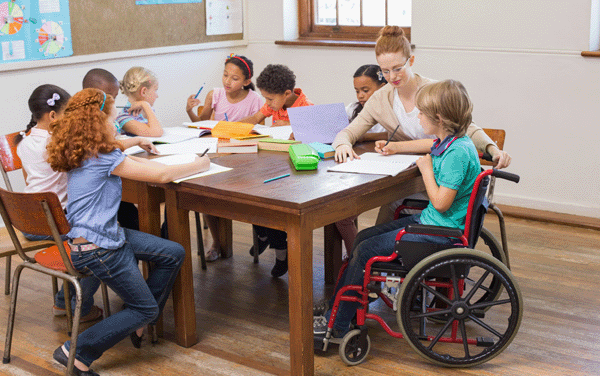
Course Length: 2 hours
Building a Respectful Culture
When you develop a culture of respect in the classroom, students feel safe and confident to take academic risks and are more open to learning. But how can we encourage students to respect one another? And how do we, as the teacher, earn the respect of our students? Building relationships is at the heart of it all! In this course you will learn more about building relationships with and among students so that your classroom environment has that culture of respect that everyone deserves.

Course Length: 2 hours
Culture of Kindness
To create a culture of kindness, we need everyone's help. Every adult who interacts with our students can do the little things to support their social, emotional and academic growth. When students are in a positive, kind and encouraging environment, everyone benefits. Some students are harder to reach. Adverse childhood experiences impact children's development in all areas. This course is designed for all school support staff as an introduction to some key terms and concepts around trauma-awareness in schools. Get inspired to find every opportunity to make a positive impact on the children you see every day.
New Teacher Fundamentals

Course Length: 12 hours
Professional Educator Competencies
Establish a positive classroom environment from day one and reduce behavior issues with proactive
strategies and
streamlined procedures. This course will focus on first year teachers and the components of a
positive classroom
environment. Learn how to create smooth procedures, classroom expectations and a community of
learners. You will also
learn about how to create a classroom environment that fosters respect and rapport between and among
students. Once you
have a solid understanding of the importance of classroom management and feel confident in your
ability keep your
classroom under control, it's time to focus on the really fun part of teaching - planning and
instruction. Here's where
new teachers' enthusiasm and energy really come to light and the creativity can be unleashed! This
course will focus on
the importance of planning in your lessons to maintain student engagement and to ensure your
students are gaining the
most out of every minute of instructional time. Through taking this course, you will learn about key
elements for
planning and preparation, classroom strategies to help boost your instruction, common issues faced
by first year
teachers. This course also includes a unit with valuable resources for first year teachers.
elementary ‐ intermediate ‐ secondary versions

Course Length: 3 hours
7 Keys to Teacher Wellness
There are only so many hours in a day and it seems like we are all stretched to the limits, all the time. Teaching is an intensive job and many of us put the needs of others ahead of our own. This can lead to serious stress and burn out. Self-care is a critical element that ensures you keep yourself healthy physically and emotionally. It’s common for educators to dismiss the self-care movement as “selfish” or “superficial.” But for teachers, self-care is so much more than breakfast in bed or treating yourself to a spa day. It’s about taking care of your health so that you’re prepared to be the best teacher you can be for yourself and your students. When teacher self-regulation is a priority, everyone wins. In this course, you will learn more about the importance of taking time for "self-care", gain new strategies and increase awareness of your own triggers.

Course Length: 2.5 hours
A+ Teaching Strategies that Work
Student engagement, communication and a whole child approach are of central importance for all teachers, K-12. You can learn a lot from watching exceptional teachers in action and apply their ideas to your own setting. In this course, you will have the opportunity to watch classroom examples of good teaching and gain new insight from top educational experts.